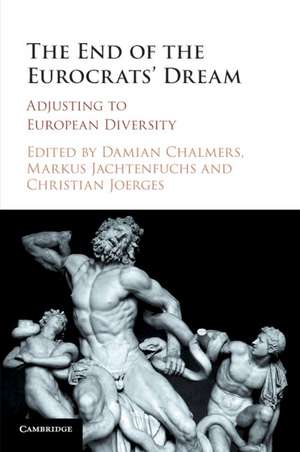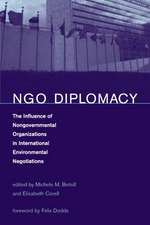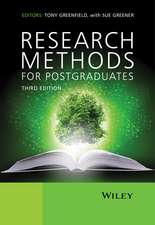The End of the Eurocrats' Dream: Adjusting to European Diversity
Editat de Damian Chalmers, Markus Jachtenfuchs, Christian Joergesen Limba Engleză Paperback – 12 dec 2018
| Toate formatele și edițiile | Preț | Express |
|---|---|---|
| Paperback (1) | 190.31 lei 3-5 săpt. | +26.56 lei 7-13 zile |
| Cambridge University Press – 12 dec 2018 | 190.31 lei 3-5 săpt. | +26.56 lei 7-13 zile |
| Hardback (1) | 308.86 lei 6-8 săpt. | |
| Cambridge University Press – 17 mar 2016 | 308.86 lei 6-8 săpt. |
Preț: 190.31 lei
Nou
Puncte Express: 285
Preț estimativ în valută:
36.42€ • 37.88$ • 30.07£
36.42€ • 37.88$ • 30.07£
Carte disponibilă
Livrare economică 22 martie-05 aprilie
Livrare express 08-14 martie pentru 36.55 lei
Preluare comenzi: 021 569.72.76
Specificații
ISBN-13: 9781107514676
ISBN-10: 1107514673
Pagini: 363
Ilustrații: 10 tables
Dimensiuni: 153 x 230 x 20 mm
Greutate: 0.49 kg
Editura: Cambridge University Press
Colecția Cambridge University Press
Locul publicării:New York, United States
ISBN-10: 1107514673
Pagini: 363
Ilustrații: 10 tables
Dimensiuni: 153 x 230 x 20 mm
Greutate: 0.49 kg
Editura: Cambridge University Press
Colecția Cambridge University Press
Locul publicării:New York, United States
Cuprins
List of tables; Preface; 1. The retransformation of Europe Damian Chalmers, Markus Jachtenfuchs and Christian Joerges; 2. The costs of non-disintegration: the case of the European Monetary Union Fritz W. Scharpf; 3. Sharing the Eurocrat's dream: a democratic approach to EMU governance in the post-crisis era Kalypso Nicolaïdis and Max Watson; 4. Neumark vindicated: the three patterns of Europeanisation of national tax systems and the future of the Social and Democratic Rechtsstaat Agustín José Menéndez; 5. What Europe does to citizenship Catherine Colliot-Thélène; 6. Silencing the Eurocrats in public crisis politics Pieter de Wilde; 7. Conflict-minimizing integration: how the EU achieves massive integration despite massive protest Phillip Genschel and Markus Jachtenfuchs; 8. An unholy trinity of EU presidents? The political accountability of post-crisis EU executive power Mark Bovens and Deidre Curtin; 9. The limits of collective action and collective leadership Giandomenico Majone; 10. Europe's legitimacy problem and the courts Dieter Grimm; 11. Crisis reconfiguration of the European constitutional state Damian Chalmers; 12. Integration through law and the crisis of law in Europe's emergency Christian Joerges.
Recenzii
'The volume is certainly meant as a wake up call - most contributors agree that at present the EU risks sleep walking to disaster … Cue for a follow-up volume I think, a process to which the commentaries, expertly edited by Julia Slupska, Research Assistant at the LSE, mark a welcome first step.' Richard Bellamy, Verfassungsblog (www.verfassungsblog.de)
'As stated in its preface, this impressive collection of essays has the ambitious aim of launching a 'fundamental debate' about European integration in the wake of the crisis and, in particular, the institutional reforms and policy choices made since 2008.' Maurizio Ferrera, Verfassungsblog (www.verfassungsblog.de)
'One of the most remarkable insights of this book is to put the debate about the future of Europe in a frame of historical contingence. The Europe that could be different is, for the same reasons, the one that is not condemned to success, as the crisis has revealed to us, after decades of calm necessity.' Daniel Innerarity, Verfassungsblog (www.verfassungsblog.de)
'The End of the Eurocrats' Dream provides a very persuasive diagnosis of the structural problems the EU encounters and provides pragmatic proposals for countering them …' Poul Fritz Kjaer, Verfassungsblog (www.verfassungsblog.de)
'The subtitle of this book, Adjusting to European Diversity, could be the slogan of a new endeavour, not to destroy the EU, but to revitalise is. Christian Joerges (Eurocrats … 299 et seq.) has given a very convincing overview of different paradigms of government and governance in the EU … We have to think 'outside of the box!' And this is what the authors of the The End of the Eurocrat's Dream have done well.' Karl-Heinz Ladeur, Verfassungsblog (www.verfassungsblog.de)
'The End of the Eurocrats' Dream is … a wake-up call warning fellow academics, European politicians and the general public that what used to be presented by many advocates and agents of European integration as a wonderful dream is now often experienced as a nightmare with potentially disastrous effects for European and national politics in all countries of the EU.' Jiøí Pøibáò, Verfassungsblog (www.verfassungsblog.de)
'This edited volume is a powerful attempt at addressing the challenges (of European integration). It brings together contributions from a wide range of renown academics from across Europe (if not beyond) and various disciplines from law to philosophy, with a stopover in political science. The authors examine several dimensions of European integration placed under strain in recent years, ranging from the monetary union, fiscal policy to concerns for citizenship.' Elise Muir, Verfassungsblog (www.verfassungsblog.de)
'While EU scholarship still tends to narrate the Union's history as one of successful adaptation, and the 'euro crisis' as something like a rite of passage, here is a book in a different mould … The volume makes for powerful critical reading. While studies of the failings of Eurozone design and their institutional consequences are now abundant, the editors have a larger ambition: to show the effects of crisis on the ideas and ideals commonly vested in the EU.' Jonathan White, Verfassungsblog (www.verfassungsblog.de)
'As stated in its preface, this impressive collection of essays has the ambitious aim of launching a 'fundamental debate' about European integration in the wake of the crisis and, in particular, the institutional reforms and policy choices made since 2008.' Maurizio Ferrera, Verfassungsblog (www.verfassungsblog.de)
'One of the most remarkable insights of this book is to put the debate about the future of Europe in a frame of historical contingence. The Europe that could be different is, for the same reasons, the one that is not condemned to success, as the crisis has revealed to us, after decades of calm necessity.' Daniel Innerarity, Verfassungsblog (www.verfassungsblog.de)
'The End of the Eurocrats' Dream provides a very persuasive diagnosis of the structural problems the EU encounters and provides pragmatic proposals for countering them …' Poul Fritz Kjaer, Verfassungsblog (www.verfassungsblog.de)
'The subtitle of this book, Adjusting to European Diversity, could be the slogan of a new endeavour, not to destroy the EU, but to revitalise is. Christian Joerges (Eurocrats … 299 et seq.) has given a very convincing overview of different paradigms of government and governance in the EU … We have to think 'outside of the box!' And this is what the authors of the The End of the Eurocrat's Dream have done well.' Karl-Heinz Ladeur, Verfassungsblog (www.verfassungsblog.de)
'The End of the Eurocrats' Dream is … a wake-up call warning fellow academics, European politicians and the general public that what used to be presented by many advocates and agents of European integration as a wonderful dream is now often experienced as a nightmare with potentially disastrous effects for European and national politics in all countries of the EU.' Jiøí Pøibáò, Verfassungsblog (www.verfassungsblog.de)
'This edited volume is a powerful attempt at addressing the challenges (of European integration). It brings together contributions from a wide range of renown academics from across Europe (if not beyond) and various disciplines from law to philosophy, with a stopover in political science. The authors examine several dimensions of European integration placed under strain in recent years, ranging from the monetary union, fiscal policy to concerns for citizenship.' Elise Muir, Verfassungsblog (www.verfassungsblog.de)
'While EU scholarship still tends to narrate the Union's history as one of successful adaptation, and the 'euro crisis' as something like a rite of passage, here is a book in a different mould … The volume makes for powerful critical reading. While studies of the failings of Eurozone design and their institutional consequences are now abundant, the editors have a larger ambition: to show the effects of crisis on the ideas and ideals commonly vested in the EU.' Jonathan White, Verfassungsblog (www.verfassungsblog.de)
Descriere
This theory-guided interdisciplinary study provides a broad conceptual perspective on the current EU crisis which goes beyond short-term detailed analysis.












